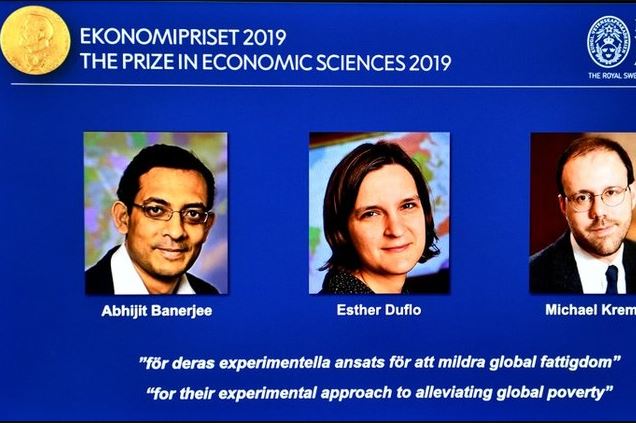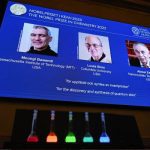U.S.-based economists Abhijit Banerjee, Esther Duflo and Michael Kremer won the 2019 Nobel Economics Prize on Monday for their work in fighting poverty that has helped millions of children around the world.
French-American Duflo becomes only the second female economics winner in the prize’s 50-year history, as well as the youngest at 46. She shared the award equally with Indian-born American Banerjee and Kremer, also of the United States.
The Royal Swedish Academy of Sciences said their work had shown how poverty could be addressed by breaking it down into smaller and more precise questions in areas such as education and healthcare, making problems easier to solve.
It said the results of their studies and field experiments had ranged from helping millions of Indian schoolchildren with remedial tutoring to encouraging governments around the world to increase funding for preventative medicine.
“It starts from the idea that the poor are often reduced to caricatures and even the people that try to help them do not actually understand what are the deep roots of (their) problems,” Duflo, speaking by telephone, told a news conference in Stockholm.
“Our goal is to make sure that the fight against poverty is based on scientific evidence,” she added of an approach that has included evaluating the impact of often obvious-sounding problems such as a lack of textbooks or teacher absence.














